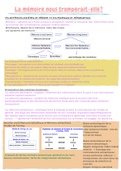Privity of Contract and Third Party Rights
Privity = the doctrine of privity of contract provides that a person who is not a party to a contract
cannot acquire any rights under that contract or be subject to any of its burdens.
The doctrine of privity of contract and its relationship with consideration
The doctrine of privity of contract states that a person may not enforce a contractual promise and
obtain remedies for its breach, even when the promise was expressly made for that person’s benefit,
if he or she is not a party to the contract.
The ‘benefit’ and ‘burden’ rules. The benefit rule is less readily explained than the burden rule.
The benefit rule was confirmed in English Law in the early 19 th century in Price V Easton (1833) (Price
owed a man, A, a sum of £13. Price agreed to work for Easton who promised to pay A. Easton
refused to pay the wages to A and A sued Easton for breach of contract).
More modern authority can be found in Dunlop Pneumatic Tyre Co. Ltd V Selfridge & Co. Ltd [1915]
(Dunlop made tyres. It did not want them sold cheaply but to maintain a standard resale price. It
agreed with its dealers (in this case Dew & Co) not to sell them below its recommended retail price.
It also bargained for dealers to get the same undertaking from their retailers (in this case Selfridge).
If retailers did sell below the list price, they would have to pay £5 a tyre in liquidated damages to
Dunlop. Dunlop thus was a third party to a contract between Selfridge and Dew. When Selfridge sold
the tyres at below the agreed price, Dunlop sued to enforce the contract by injunction and
claimed damages. Selfridge argued it could not enforce the burden of a contract between itself and
Dew, which Selfridge had not agreed to. At trial, the judge of first instance, found in favour of
Dunlop. In appeal the damages and injunction were reversed, saying that Selfridge was not a
principal or an agent and thus was not bound. The issue put to the House of Lords as to whether
Dunlop could get damages from Selfridge without a contractual relationship. The House of Lords, in
a unanimous decision from Viscount Haldane L.C., Lord Dunedin, Lord Atkinson, Lord Parker of
Waddington, Lord Sumner, and Lord Parmoor, held that it could not).
Consideration must move from the promisee
The rule that consideration must move from the promisee appears to originate in an early privity
case: Tweddle V Atkinson (1861) (A couple were in process of getting married. The father of the
bride entered an agreement with the father of the groom that both the fathers will pay the bride
and groom some money. The father of the bride died without having paid and so as the father of the
son. The groom made a claim against the executor of the will. The Court held that groom was not
party to the agreement and the consideration did not move from him. Therefore he was not entitled
to enforce the contract).
The rule that consideration must move from the promisee was traditionally explained on the basis
that a party not providing consideration is not part of the axis of inducement or mutual exchange
which is central to the enforceability of agreements. However, when examining Tweddle V Atkinson
(1861) that this was not how this rule was interpreted in the context of third party enforcement. –
‘consideration must move from the plaintiff (claimant)’ or person seeking to enforce the promise.
, Since the introduction of this legislation, a third party seeking to enforce a contractual provision
using the 1999 Act cannot be defeated by a claim that the third party has not provided consideration
to support the promise, as long as the promise is not gratuitous (i.e. as long the promisee has
supplied consideration).
Why couldn’t two parties contract to give a benefit to a 3 rd party? Because the 3rd party had given no
consideration in respect to receiving the benefit.
However, since the introduction of the contracts (Rights of Third Parties) Act 1999, a contract
can be made giving a third party a benefit as long as the two contracting parties have given
sufficient consideration.
Can a promise be the subject matter of a trust?
Les Affreteurs Reunis (Where a broker C negotiated a charterparty by which the shipowner A
promised the charterer B to pay the broker a commision, B was trustee of this promise for
C).
o Must be a clear intention to create a trust
o Must be clear that it is the third party who is intended to benefit
o Intention to benefit must be irrevocable
Can we find a collateral contract between one of the contracting parties and the third party?
A collateral contract is a contract where the consideration is the entry into another contract, and co-exists side
by side with the main contract. For example, a collateral contract is formed when one party pays the other
party a certain sum for entry into another contract. A collateral contract may be between one of the parties
and a third party.
Shanklin Pier v Detel Products (Shanklin Pier Ltd hired a contractor to paint Shanklin Pier.
They spoke to Detel Products Ltd about whether a particular paint was suitable to be used,
and Detel assured them that it was, and that it would last for at least seven years. [1] On the
basis of this conversation Shanklin Pier Ltd instructed the contractors to use a particular
paint, which they did. The paint started to peel after three months, and Shanklin Pier
attempted to claim compensation from Detel Products).
FOLLOWED IN Wells v Buckland Sand
Finding of a collateral contract AVOIDS the doctrine of privity
If third party has no contractual rights – could there be a duty of care in the tort of negligence?
Donoghue v Stevenson
Can a third party have the benefit of an exclusion clause?
Adler v Dickson (The defendants were the master and boatswain of the P&O passenger
liner Himalaya. The plaintiff was a passenger who was injured when an insecure
gangway slipped and he fell 16ft to the wharf. The plaintiff had a contract with P&O
which excluded liability for such an injury: ‘passengers . . Are carried at passengers’
entire risk’ and ‘The company will not responsible for and shall be exempt from all
liability in respect of any injury whatsoever of or to the person of any passenger . .
Whether such injury shall occur on land, on shipboard or elsewhere . . And whether the
same shall arise from or be occasioned by the negligence of the company’s servants . In
Privity = the doctrine of privity of contract provides that a person who is not a party to a contract
cannot acquire any rights under that contract or be subject to any of its burdens.
The doctrine of privity of contract and its relationship with consideration
The doctrine of privity of contract states that a person may not enforce a contractual promise and
obtain remedies for its breach, even when the promise was expressly made for that person’s benefit,
if he or she is not a party to the contract.
The ‘benefit’ and ‘burden’ rules. The benefit rule is less readily explained than the burden rule.
The benefit rule was confirmed in English Law in the early 19 th century in Price V Easton (1833) (Price
owed a man, A, a sum of £13. Price agreed to work for Easton who promised to pay A. Easton
refused to pay the wages to A and A sued Easton for breach of contract).
More modern authority can be found in Dunlop Pneumatic Tyre Co. Ltd V Selfridge & Co. Ltd [1915]
(Dunlop made tyres. It did not want them sold cheaply but to maintain a standard resale price. It
agreed with its dealers (in this case Dew & Co) not to sell them below its recommended retail price.
It also bargained for dealers to get the same undertaking from their retailers (in this case Selfridge).
If retailers did sell below the list price, they would have to pay £5 a tyre in liquidated damages to
Dunlop. Dunlop thus was a third party to a contract between Selfridge and Dew. When Selfridge sold
the tyres at below the agreed price, Dunlop sued to enforce the contract by injunction and
claimed damages. Selfridge argued it could not enforce the burden of a contract between itself and
Dew, which Selfridge had not agreed to. At trial, the judge of first instance, found in favour of
Dunlop. In appeal the damages and injunction were reversed, saying that Selfridge was not a
principal or an agent and thus was not bound. The issue put to the House of Lords as to whether
Dunlop could get damages from Selfridge without a contractual relationship. The House of Lords, in
a unanimous decision from Viscount Haldane L.C., Lord Dunedin, Lord Atkinson, Lord Parker of
Waddington, Lord Sumner, and Lord Parmoor, held that it could not).
Consideration must move from the promisee
The rule that consideration must move from the promisee appears to originate in an early privity
case: Tweddle V Atkinson (1861) (A couple were in process of getting married. The father of the
bride entered an agreement with the father of the groom that both the fathers will pay the bride
and groom some money. The father of the bride died without having paid and so as the father of the
son. The groom made a claim against the executor of the will. The Court held that groom was not
party to the agreement and the consideration did not move from him. Therefore he was not entitled
to enforce the contract).
The rule that consideration must move from the promisee was traditionally explained on the basis
that a party not providing consideration is not part of the axis of inducement or mutual exchange
which is central to the enforceability of agreements. However, when examining Tweddle V Atkinson
(1861) that this was not how this rule was interpreted in the context of third party enforcement. –
‘consideration must move from the plaintiff (claimant)’ or person seeking to enforce the promise.
, Since the introduction of this legislation, a third party seeking to enforce a contractual provision
using the 1999 Act cannot be defeated by a claim that the third party has not provided consideration
to support the promise, as long as the promise is not gratuitous (i.e. as long the promisee has
supplied consideration).
Why couldn’t two parties contract to give a benefit to a 3 rd party? Because the 3rd party had given no
consideration in respect to receiving the benefit.
However, since the introduction of the contracts (Rights of Third Parties) Act 1999, a contract
can be made giving a third party a benefit as long as the two contracting parties have given
sufficient consideration.
Can a promise be the subject matter of a trust?
Les Affreteurs Reunis (Where a broker C negotiated a charterparty by which the shipowner A
promised the charterer B to pay the broker a commision, B was trustee of this promise for
C).
o Must be a clear intention to create a trust
o Must be clear that it is the third party who is intended to benefit
o Intention to benefit must be irrevocable
Can we find a collateral contract between one of the contracting parties and the third party?
A collateral contract is a contract where the consideration is the entry into another contract, and co-exists side
by side with the main contract. For example, a collateral contract is formed when one party pays the other
party a certain sum for entry into another contract. A collateral contract may be between one of the parties
and a third party.
Shanklin Pier v Detel Products (Shanklin Pier Ltd hired a contractor to paint Shanklin Pier.
They spoke to Detel Products Ltd about whether a particular paint was suitable to be used,
and Detel assured them that it was, and that it would last for at least seven years. [1] On the
basis of this conversation Shanklin Pier Ltd instructed the contractors to use a particular
paint, which they did. The paint started to peel after three months, and Shanklin Pier
attempted to claim compensation from Detel Products).
FOLLOWED IN Wells v Buckland Sand
Finding of a collateral contract AVOIDS the doctrine of privity
If third party has no contractual rights – could there be a duty of care in the tort of negligence?
Donoghue v Stevenson
Can a third party have the benefit of an exclusion clause?
Adler v Dickson (The defendants were the master and boatswain of the P&O passenger
liner Himalaya. The plaintiff was a passenger who was injured when an insecure
gangway slipped and he fell 16ft to the wharf. The plaintiff had a contract with P&O
which excluded liability for such an injury: ‘passengers . . Are carried at passengers’
entire risk’ and ‘The company will not responsible for and shall be exempt from all
liability in respect of any injury whatsoever of or to the person of any passenger . .
Whether such injury shall occur on land, on shipboard or elsewhere . . And whether the
same shall arise from or be occasioned by the negligence of the company’s servants . In











